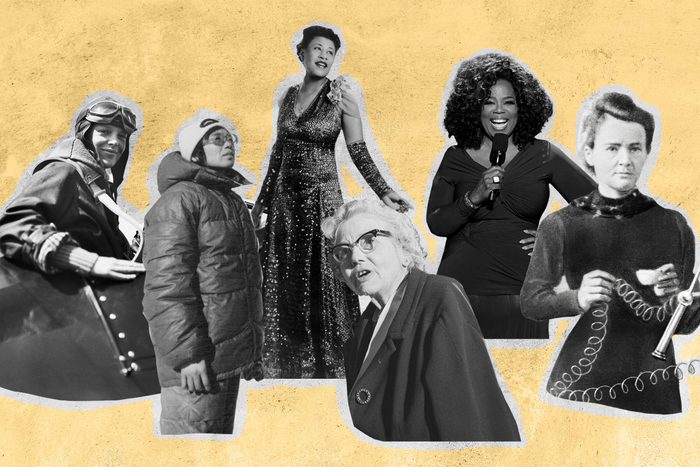
Famous female firsts to know
It’s hard to imagine a time when women couldn’t be doctors, pilots, business owners, registered voters or even marathon runners. But these achievements are relatively recent and were hard-won by women who faced a significant amount of opposition from a patriarchal society designed to work against them. Often, the first woman to break a certain barrier wasn’t even recognized for her groundbreaking work—because men took credit for female achievements, women’s contributions were willfully ignored or women simply went unnoticed. This was especially true for women of color and those without financial means.
Yet despite facing adversity, these important women in history made it clear that their place was wherever they wanted it to be. And that inspiring sentiment paved the way for all of us today.
So read on to learn about female firsts, from the first female politicians to the first woman to be inducted into the Rock & Roll Hall of Fame (which didn’t happen until 1987!). These are the women who broke the proverbial glass ceiling and wouldn’t take no for an answer. While society still doesn’t treat women as equals to men in some pretty significant ways, these pioneering women remind us that we need to fight for what we want—and what we deserve.
Get Reader’s Digest’s Read Up newsletter for more fun facts, travel, humor, cleaning and tech all week long.
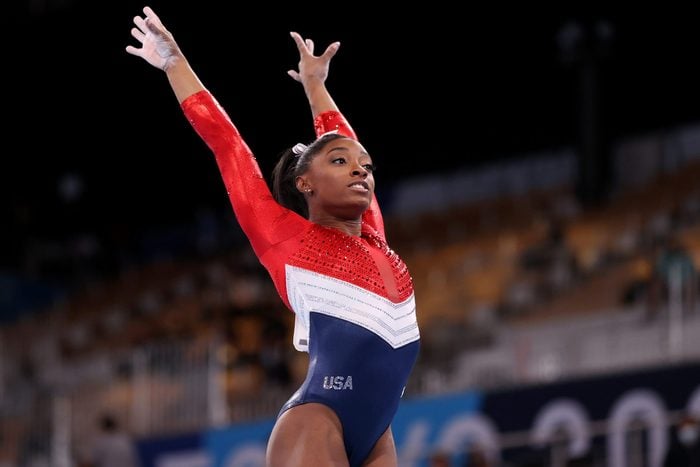
Simone Biles, the first woman gymnast to land a Yurchenko double pike in competition
With 25 medals (19 of them gold!), Simone Biles is the most decorated American gymnast in history. She’s also the first woman to have landed the Yurchenko double pike vault at an international competition, a feat she accomplished at the World Artistic Gymnastics Championships on Sunday, Oct. 1, 2023. The difficult move, which previously had been done only by men, involves a series of intense acrobatics: a round off onto the springboard, a back handspring onto the vaulting table and a piked double backflip to land.
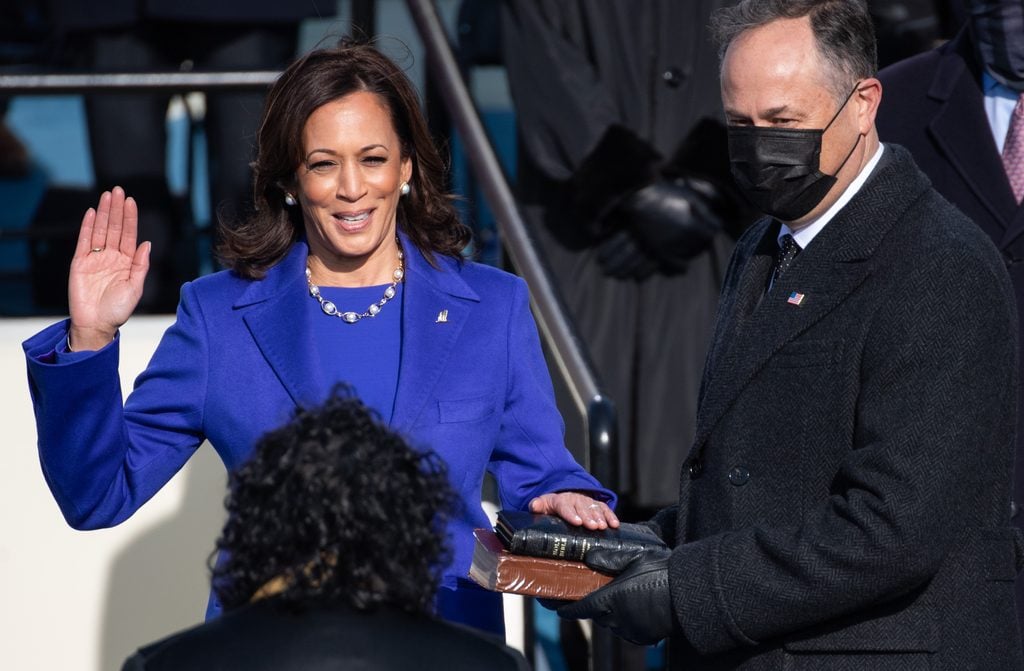
Kamala Harris, the first woman U.S. vice president
It was an incredible moment: On Jan. 20, 2021, Kamala Harris stepped into history as the 49th U.S. vice president, shattering not one but three glass ceilings! She’s the first woman, the first Black American and the first Asian American to rock the VP office. What’s more, Harris broke another barrier in November 2021, when she took over as U.S. president for 85 minutes. The presidency passed to her while President Joe Biden underwent a medical procedure that required anesthesia.
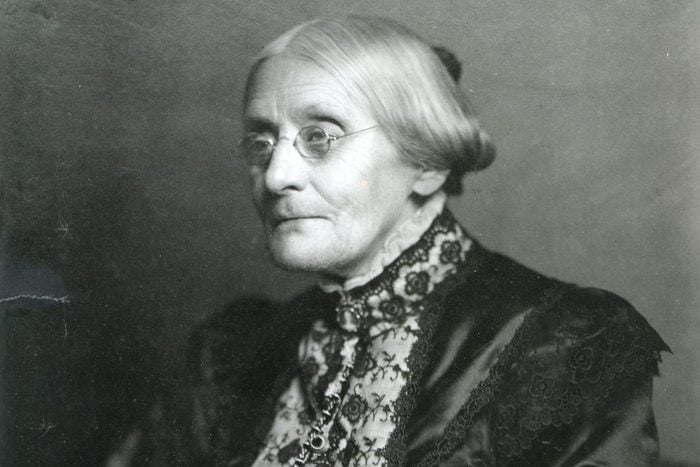
Susan B. Anthony, the first woman in America depicted on a U.S. coin
Susan B. Anthony was a powerhouse of temperance, abolition, labor rights and equal pay crusades. She lit up the women’s suffrage movement, partnering with fellow activist Elizabeth Cady Stanton to travel and champion women’s right to vote. But Anthony wasn’t just a trailblazer in activism; in 1979, thanks to President Jimmy Carter and the Susan B. Anthony Dollar Coin Act, she became the first woman to have her face grace a circulating U.S. coin.
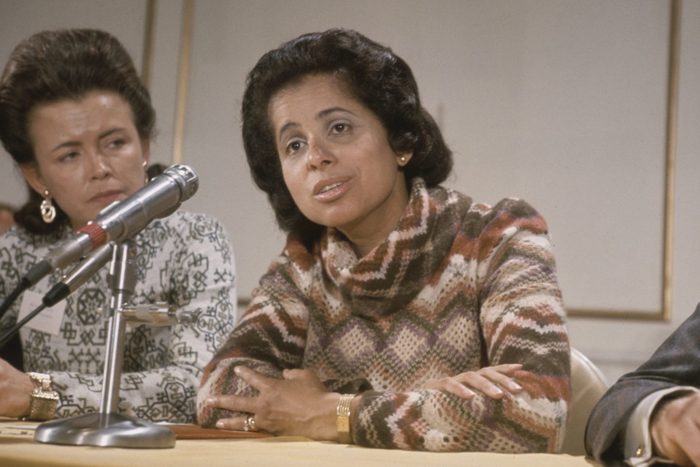
Patricia R. Harris, the first female U.S. Secretary of Health and Human Services
Patricia Roberts Harris began breaking barriers at a young age. In 1960, she not only aced her studies at the George Washington University Law School but also graduated at the top of her class. President John F. Kennedy even made her co-chair of the National Women’s Committee for Human Rights. Then, in 1965, Harris made history as the first Black woman named as a U.S. ambassador to Luxembourg, appointed by President Lyndon B. Johnson. But that’s not all. After her diplomatic triumphs, she became the first Black dean of a U.S. law school when she joined the Howard University faculty.
In the 1970s, President Jimmy Carter made her the secretary of the Department of Housing and Urban Development. This made her the first Black woman to serve as a cabinet secretary. It gets better: In 1980, President Carter named her the first secretary of the newly revamped Department of Health and Human Services.
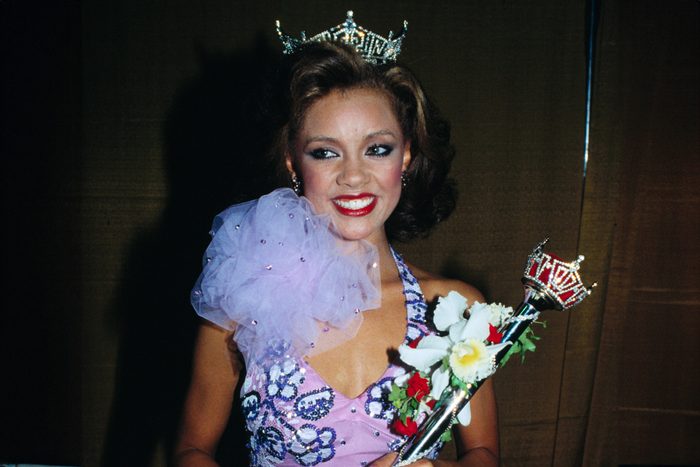
Vanessa Williams, the first Black Miss America
You may have seen Vanessa Williams in some of your favorite TV shows and movies, or you might’ve danced to one of her hit songs, like “Save the Best for Last.” But do you know what makes her a female first? In 1983, Williams became the first Black woman in the pageant’s six-decade history to win the Miss America title.
How’d she do it? First, she conquered Miss New York. Then she owned the stage in Atlantic City, where the Miss America pageant had a history of shutting out Black contestants. Sadly, Williams had to give up her Miss America throne only 10 months after her win, when nude images from a past photo shoot were published without her consent. Despite the storm, she gracefully stepped down from the Miss America title and dove headfirst into her passion for music and acting.
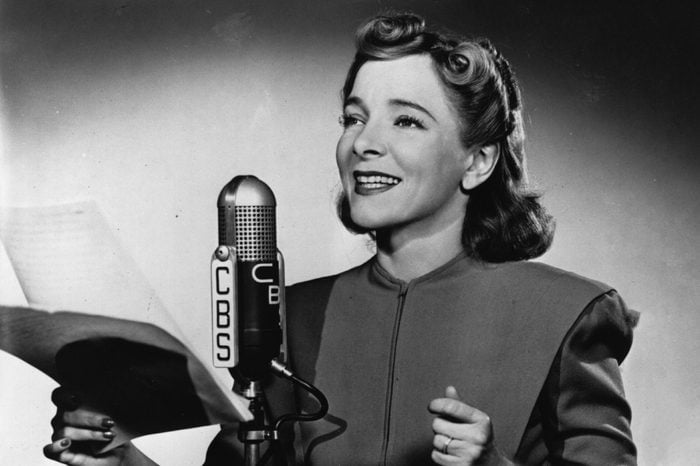
Helen Hayes, the first woman EGOT winner
On Feb. 19, 1977, the legendary Helen Hayes scored a Grammy for Best Spoken Word Recording for “Great American Documents,” making her the first female EGOT winner. (The EGOT acronym describes the rare performer who has won all four major performing arts awards: Emmy, Grammy, Oscar and Tony.) Well into her 70s, Hayes claimed the final piece, earning the title of EGOT winner and First Lady of American Theater.
But her journey was a long one, beginning in 1905 at the tender age of 5. She soared to stardom in 1927 with the play Coquette. Fast forward to 1932, when she won a Best Actress Oscar for her Hollywood debut, The Sin of Madelon Claudet. A Tony victory in 1947 for Happy Birthday added to her impressive collection, which she rounded out in 1953, when she clinched a Best Actress Emmy for a TV appearance on Schlitz Playhouse of Stars.
As if that weren’t impressive enough, President Ronald Reagan awarded her the Presidential Medal of Freedom in 1986 for her outstanding contributions to the arts. What a trailblazer!
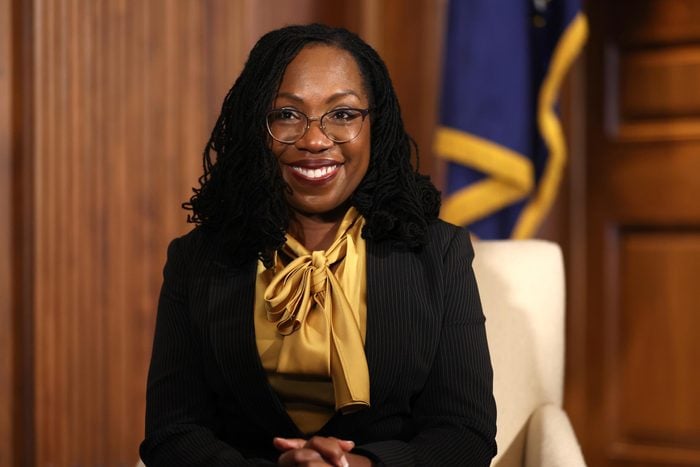
Ketanji Brown Jackson, the first Black woman Supreme Court justice
On June 30, 2022, Ketanji Brown Jackson became the first Black woman to serve on the Supreme Court. She replaced Stephen Breyer, who had been on the court for 28 years. Jackson, who has served as a federal judge and a public defender, among other things, joined the court during a time of intense controversy, less than a week after the 6–3 conservative majority voted to overturn Roe v. Wade.
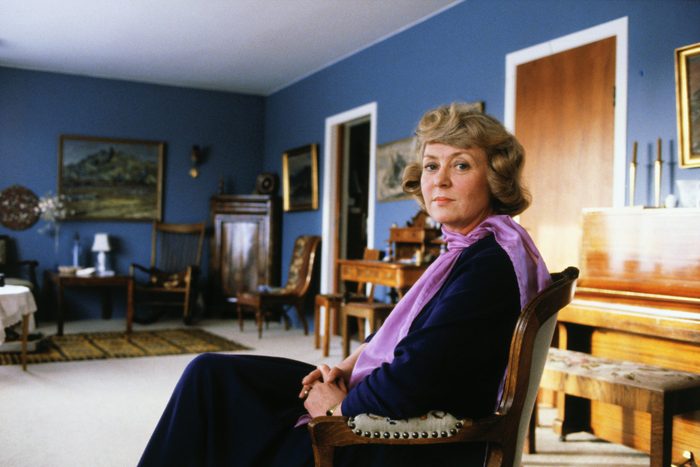
Vigdís Finnbogadóttir, the first democratically elected woman president
Though it’s becoming increasingly common for women to be elected president of a country, someone had to be the first. That accolade goes to Iceland’s Vigdís Finnbogadóttir, who, on June 29, 1980, became the first woman to be democratically elected as president of any country. After serving for 16 years, she also became the longest-serving elected female head of state. Although Iceland has elected two female prime ministers since, Finnbogadóttir remains the only woman to have been president of the country.
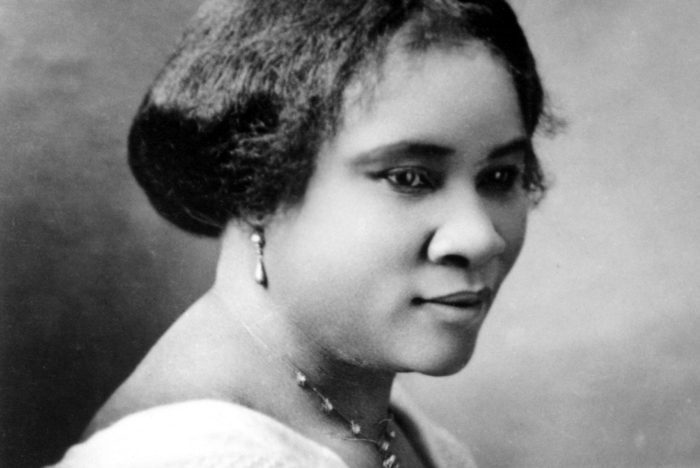
Madam C.J. Walker, the first female self-made millionaire in America
Born Sarah Breedlove in 1867 to parents who had been enslaved, this groundbreaking Black entrepreneur created a line of hair-care products formulated for Black women dealing with hair loss. In 1906, she married Charles J. Walker and began referring to herself professionally as Madam C.J. Walker. In addition to creating hair products, she established distribution centers to ensure that her 3,000 door-to-door salespeople—most of whom were Black women—had plenty to sell, and she also founded a cosmetology school to train them.
Notably, she was the first woman to become a self-made millionaire in the United States. As Walker found financial success, she became a well-known philanthropist, funding scholarships for women at the Tuskegee Institute and donating to social services for orphans, the elderly and migrants.
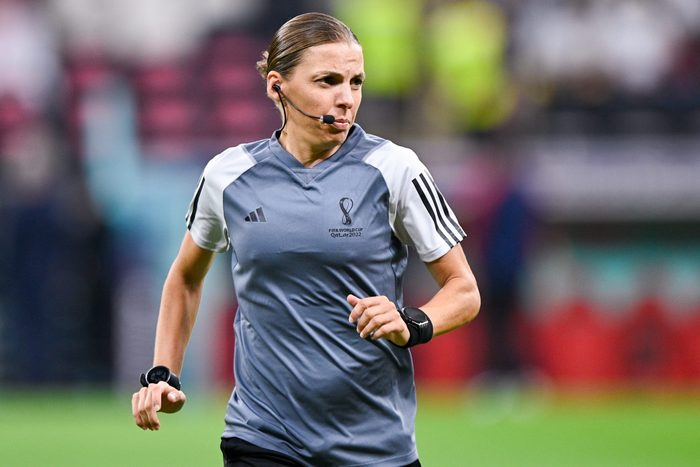
Stéphanie Frappart, the first woman referee of a men’s World Cup match
On Dec. 1, 2022, Stéphanie Frappart of France became the first woman to referee a men’s World Cup game. She was joined by two other women—assistants Neuza Back of Brazil and Karen Diaz Medina of Mexico—in the history-making match in Qatar, which pitted Germany against Costa Rica. Frappart is no stranger to firsts: In 2019, she was the first woman to officiate a handful of other major men’s soccer games, including a Ligue 1 and UEFA Champions League match.
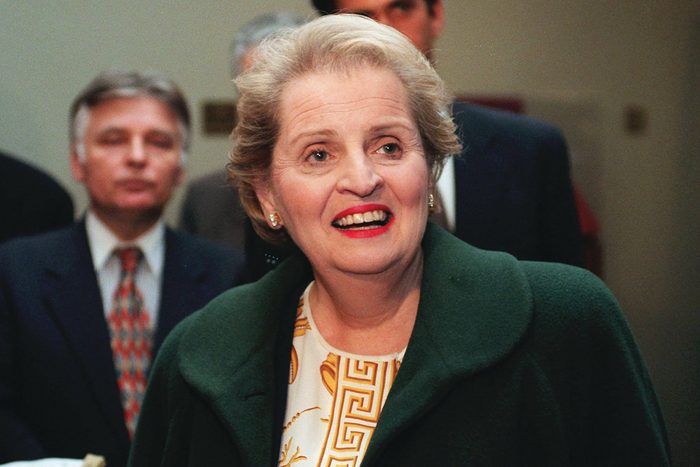
Madeleine Albright, the first female U.S. Secretary of State
In 1997, President Bill Clinton appointed Madeleine K. Albright the 64th Secretary of State of the United States. The appointment made her the highest-ranking woman in the federal government’s history. In 2004, Condoleezza Rice became the second woman, as well as the first Black woman, to hold the job. Five years later, Hillary Rodham Clinton became the nation’s third female Secretary of State.
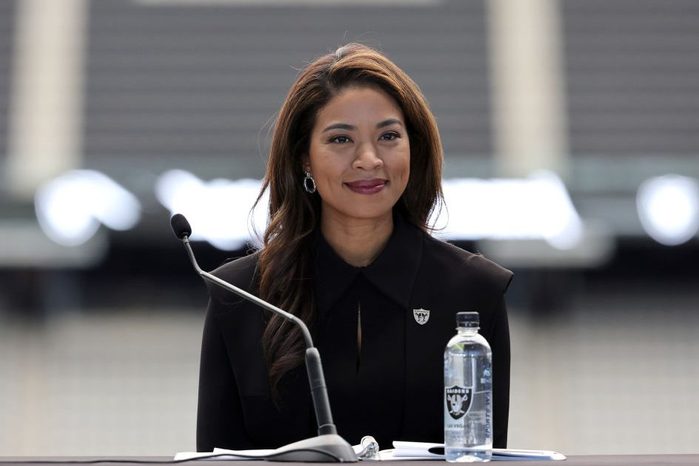
Sandra Douglass Morgan, the first Black woman president in NFL history
In July 2022, the Las Vegas Raiders hired attorney Sandra Douglass Morgan to be the team’s president, making her the first Black woman to hold that title for an NFL franchise. Prior to her current role, Morgan was also the first person of color to serve as chair of the Nevada Gaming Control Board and the first Black city attorney in Nevada.
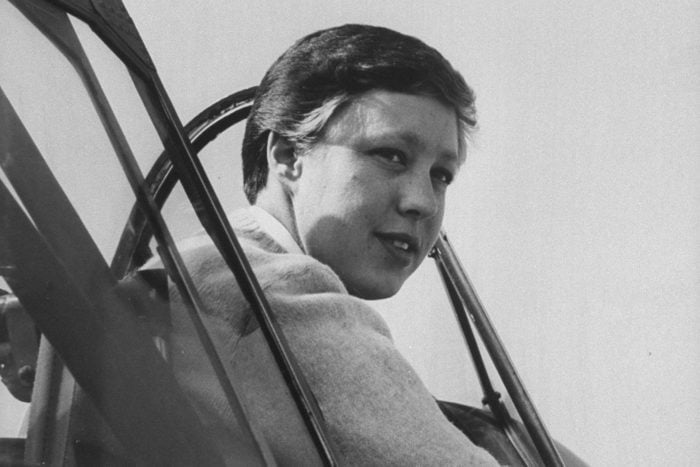
Wally Funk and the FLATs, the first women to go through astronaut testing
In 1961, Mary Wallace “Wally” Funk became one of the first women to undergo the physical and psychological testing NASA required to become an astronaut. At just 22 years old, Funk was the youngest of 13 so-called Fellow Lady Astronaut Trainees (FLATs), who were also unofficially known as the Mercury 13—a nod to Project Mercury, NASA’s first human spaceflight program. Despite the fact that Funk and the other women performed better than any of the men of Project Mercury (including John Glenn), President Lyndon B. Johnson ended the program in 1962, preferring the optics of sending men to space at the height of the Cold War. Although Funk did not become the first woman to go to space, she did briefly become the oldest person to travel to space, doing so on July 20, 2021, at the age of 82. (William Shatner, 90, earned the title in October 2021.)
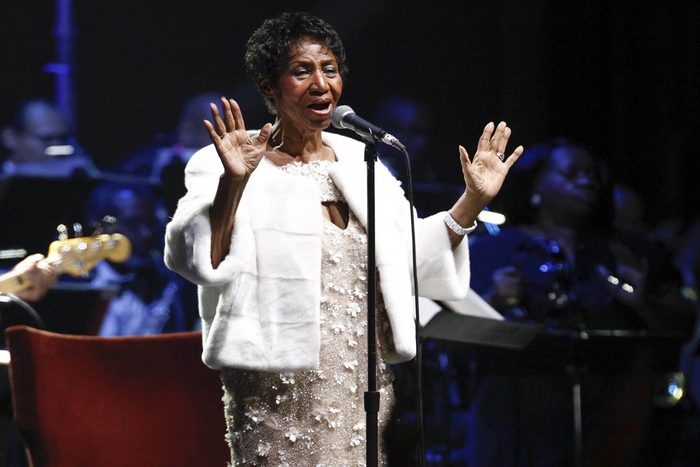
Aretha Franklin, the first woman Rock & Roll Hall of Famer
Here’s a bit of pop culture trivia: In 1987, Aretha Franklin became the first woman to be inducted into the Rock & Roll Hall of Fame. The late Queen of Soul may be most famous for her reworking of Otis Redding’s “Respect,” which the Hall of Fame views as Franklin’s “assertion of selfhood in the women’s movement.”
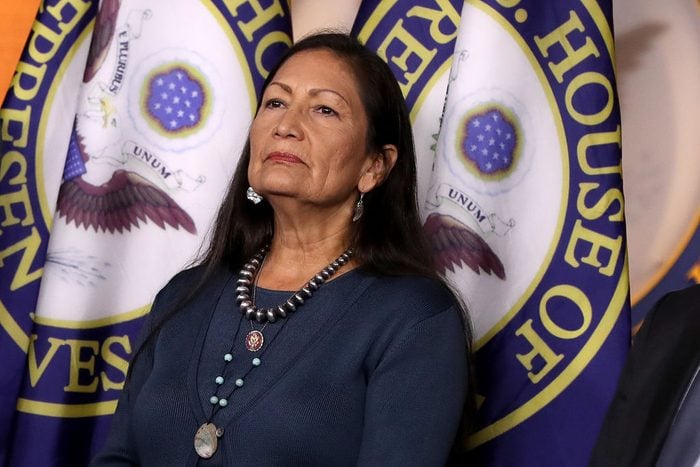
Deb Haaland, the first Indigenous woman to serve in a Cabinet position
Deb Haaland made history in March 2021, when she was confirmed as the Secretary of the Interior of the United States—the first Indigenous person of any gender to hold a Cabinet position. A member of the Pueblo of Laguna, Haaland has spent much of her career focused on environmental justice and climate change.
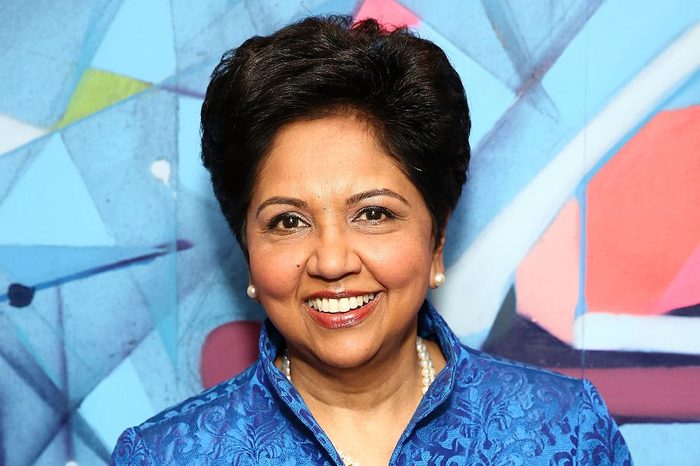
Indra Nooyi, the first woman of color to head a Fortune 500 company
When Indra Nooyi was named the CEO of PepsiCo in 2006, she became the first woman of color and the first immigrant to helm a Fortune 500 company—a position she held for 12 years. Born in India in 1955, Nooyi earned her MBA in 1974 from the prestigious Indian Institute of Management Calcutta, followed by a master’s degree in public and private management in 1980 from Yale. She spent the next 14 years working as a corporate consultant before getting job offers from both PepsiCo and General Electric in 1994. Nooyi chose PepsiCo, gradually working her way up through the company’s ranks until her historic appointment as CEO in 2006.
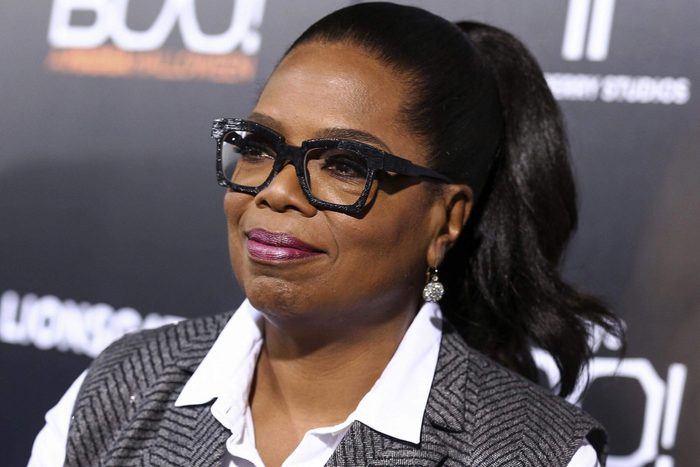
Oprah Winfrey, the first female owner and producer of a talk show
Oprah Winfrey wasn’t comfortable in her role as a TV news anchorwoman, and her empathy with her interviewees earned her criticism rather than accolades from her bosses. But this ironic failure led to her being hired as the host of a morning talk show in Chicago in 1984. Within a year, the network renamed the program The Oprah Winfrey Show, and within two years, the show entered national syndication. Almost immediately, it became the highest-rated talk show in television history. The same year, Winfrey became the first Black woman in the American entertainment industry to establish and own a production company, Harpo Studios. In 1988, Harpo acquired The Oprah Winfrey Show, making Winfrey the first woman to own and produce her own talk show.
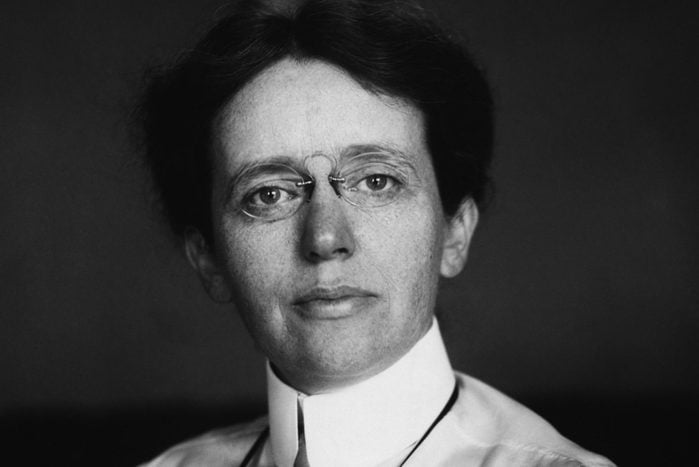
Sara Josephine Baker, the first woman to serve as director of a U.S. child health bureau
Although Sara Josephine Baker, MD, DrPH, is best known today for her work in containing a 1907 typhoid outbreak in New York City, she made history a year later when she was appointed the first director of the city’s new Bureau of Child Hygiene, the first department of its kind in the United States. When Baker retired in 1923, New York City had the lowest infant mortality rate of any major American city. In the mid-1930s, she moved to New Jersey, where she shared a house with Ida Wylie—a novelist and her life partner—and another female physician named Louise Pearce.
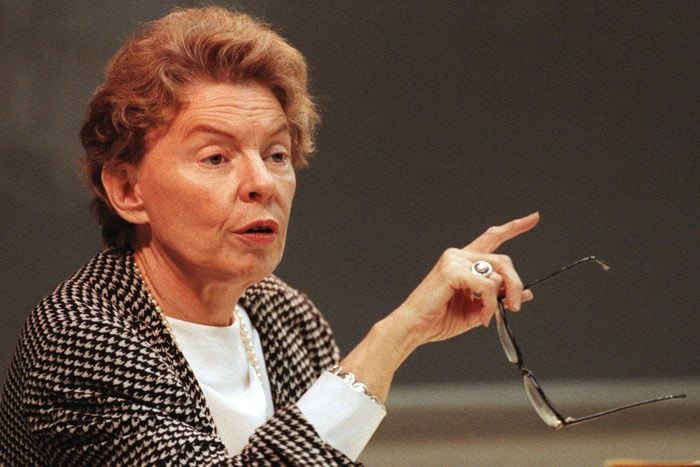
Jeane Kirkpatrick, the first woman to serve as U.S. ambassador to the United Nations
Jeane Kirkpatrick first served as President Ronald Reagan’s foreign policy advisor during his 1980 presidential campaign. A year later, Reagan appointed her to be the U.S. Representative to the United Nations, making her the first woman to hold that position.
But she wasn’t the first American woman to make diplomatic history. In 1949, Helen Eugenie Moore Anderson became the first American woman to serve as the chief for a mission abroad with the title of ambassador (at the appointment of President Harry S. Truman). Anderson continued her diplomatic career throughout the 1950s and 1960s, and in 1965, she was appointed to be an ambassador to the U.S. delegation to the United Nations, becoming the first woman to sit on the Security Council.
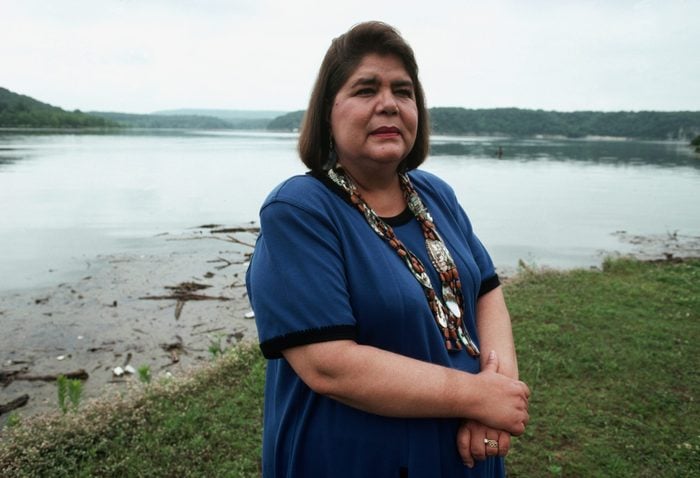
Wilma Mankiller, the first woman elected as chief of a major Indigenous tribe
Born in Tahlequah, Oklahoma, in 1945, Wilma Pearl Mankiller grew up as a member of the Cherokee Nation. Her family was relocated to San Francisco in 1957 as part of a federal program to “urbanize” Indigenous Americans, but in 1974, she returned to her home state, where she immediately got to work improving rural services for her community, with initiatives in housing, health care and education. Mankiller continued to take public-service roles, and in 1985, she was elected chief of the Cherokee, the second-largest Indigenous nation in the United States. She was reelected in 1991 and served as principal chief until 1995. Three years later, she received the Presidential Medal of Freedom.
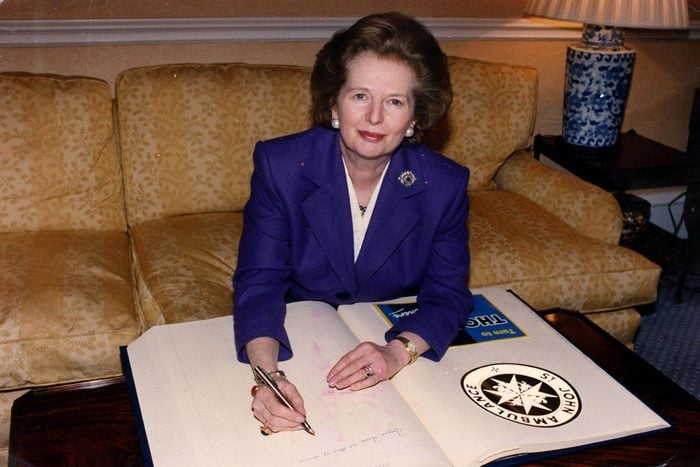
Margaret Thatcher, the first female prime minister of the U.K.
This British stateswoman was the first woman to serve as prime minister of the United Kingdom, and she earned the distinction of being the longest-serving British prime minister of the 20th century. And this was after she bet against herself (and every other woman) in 1969, predicting that “no woman” would become prime minister or foreign secretary during her lifetime. Clearly, her prediction missed the mark.
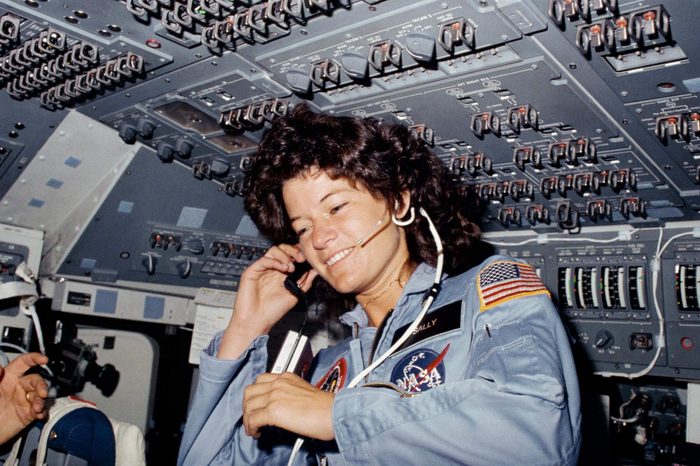
Valentina Tershkova, Sally Ride, Mae Jemison, Jessica Watkins and Eileen Collins, the first women to go to space
Russia’s Valentina Tershkova became the first woman in space in 1963, when she spent three days orbiting Earth 48 times in a space capsule.
In 1983, America sent its first woman to space: Sally Ride, who had joined NASA only five years earlier. And although she didn’t officially come out during her lifetime, Ride confirmed she was gay in a statement prepared before her death, making her the first acknowledged LGBTQ+ NASA astronaut.
Nine years later, American doctor and engineer Mae Jemison made history as the first Black woman in space as one of seven crew members aboard the space shuttle Endeavor in 1992. After that, it was another three decades before NASA astronaut Jessica Watkins became the first Black woman to be on an International Space Station crew.
Another important first occurred on Feb. 3, 1995, when Eileen Collins became the first woman to pilot a space shuttle. Collins made history again on July 23, 1999, when she became the first woman to command a space shuttle mission.
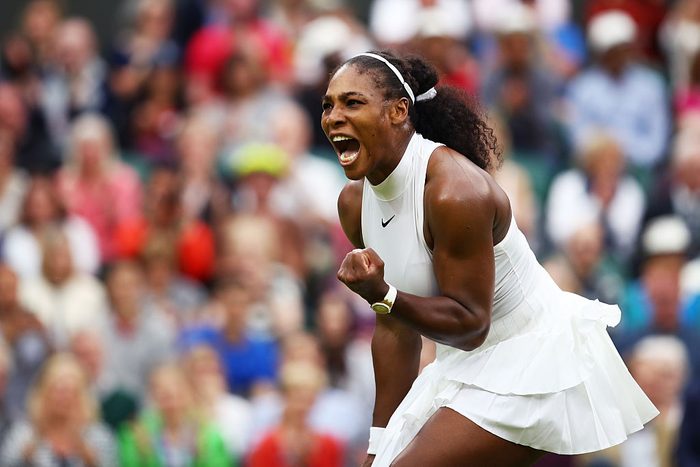
Serena Williams, the first and only tennis player to accomplish a Career Golden Slam in singles and doubles
Serena Williams, who announced her plans to retire from tennis in August 2022, spent the past three decades making history. This includes being the first—and only—professional tennis player of any gender to accomplish a Career Golden Slam in both singles and doubles. If you’re unfamiliar with tennis, a Golden Slam means that a player has won each of the four Grand Slam tournaments (the Australian Open, the French Open, Wimbledon and the U.S. Open) and an Olympic gold medal. Williams completed her singles Golden Slam on Aug. 4, 2012, when she won her first singles gold medal at the London Olympics. A decade earlier, Williams and her sister, Venus, completed their doubles Golden Slam at the 2001 Australian Open, a year after winning Wimbledon and gold medals at the 2000 Sydney Olympics.
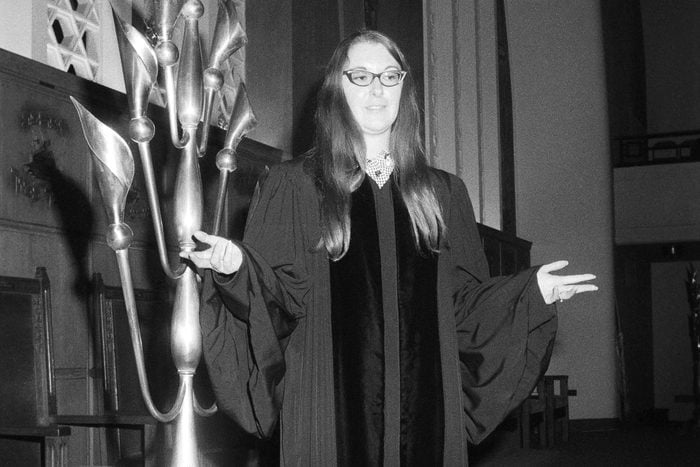
Sally Preisand, the first woman rabbi in the United States
Growing up in Cleveland in the 1950s and 1960s, Sally Priesand didn’t see any women serving as rabbis. But this wasn’t limited to her area: At the time, it was virtually unheard of for a woman to occupy leadership roles in any religion. Nevertheless, Preisand enrolled in rabbinical school after graduating from the University of Cincinnati in 1968, and she was fully ordained on June 3, 1972. Throughout her career, she spoke out for equality in the Jewish religion.
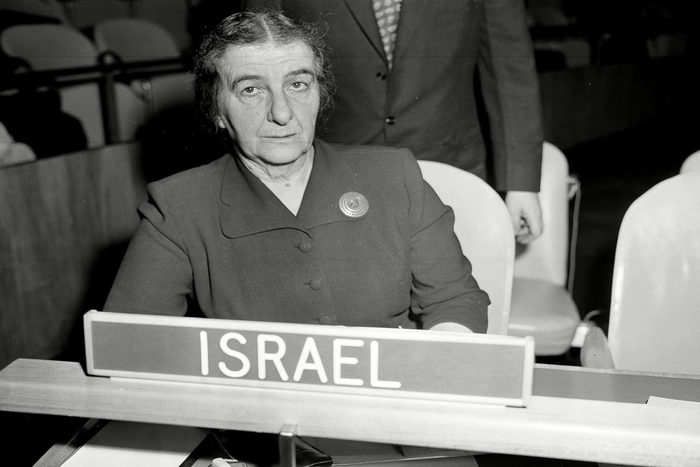
Golda Meir, the first woman to serve as prime minister in the Middle East
In 1969, Golda Meir became the fourth prime minister of Israel and the first woman to hold the title. Born in 1898 in Kyiv, Ukraine, Goldie Mabovitch and her family immigrated to Wisconsin in 1905 and became part of a Zionist group that called for the establishment of a Jewish homeland in Palestine. After obtaining her teaching certification in 1917 and marrying Morris Meyerson (she officially changed her name from Meyerson to Meir in 1956), she, along with her husband, joined a collective settlement in Palestine in 1921, then moved to Jerusalem in 1924. For nearly three decades before her appointment as prime minister, Meir worked for the Israeli government in various roles.
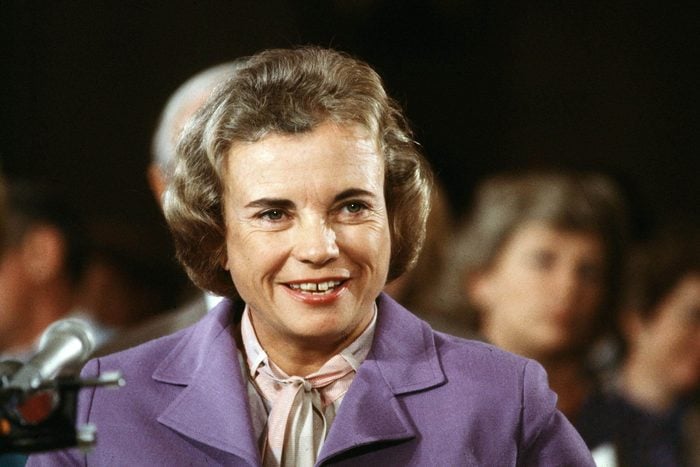
Sandra Day O’Connor, the first woman to become a Supreme Court justice
In 1981, Sandra Day O’Connor was nominated by President Ronald Reagan to serve as a Supreme Court justice, making a name for herself not only as the first female justice but also as one of SCOTUS’s most thoughtful centrists. But long before Justice O’Connor, another woman was making judicial history: In 1879, Belva Lockwood became the first woman admitted to the Supreme Court bar, and a year later, she became the first woman to argue a case before the country’s highest court.
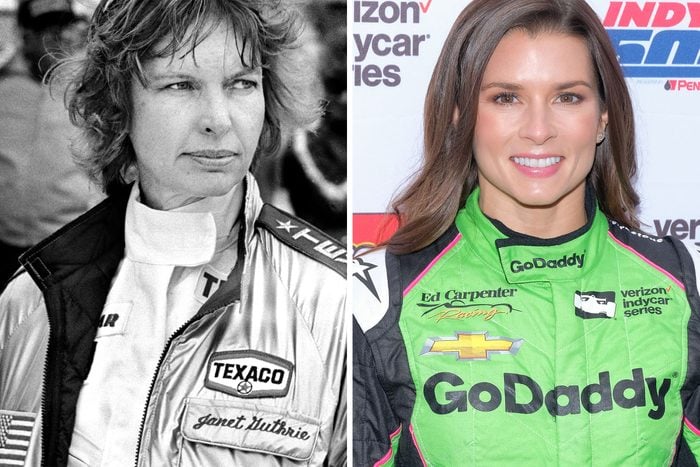
Janet Guthrie and Danica Patrick, the first female Indy 500 contender and IndyCar winner
Janet Guthrie, an aerospace engineer who was training to be an astronaut, turned to car racing when she was cut from the space program for not having completed her PhD. In 1977, Guthrie became the first female Indy 500 contender. A few decades later, Danica Patrick entered the IndyCar racing scene in 2005 and made her Indianapolis 500 debut later that year. In 2008, Patrick won the Indy Japan 300, which made her the first female winner in IndyCar racing history.
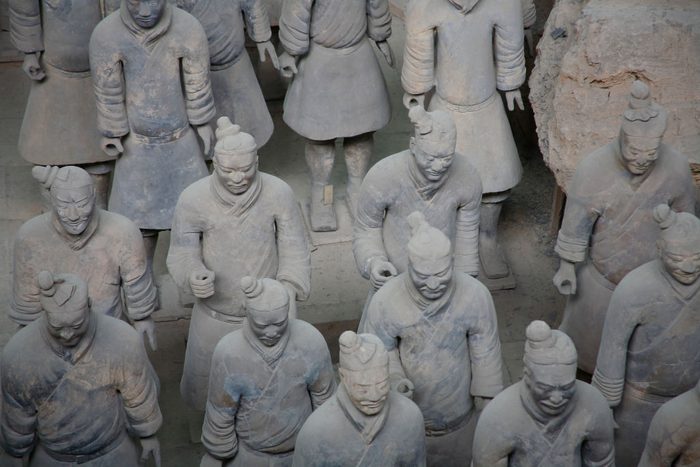
Fu Hao, the first recorded female military leader
Though it’s impossible to know with certainty which woman was truly the first in the world to lead a military, Fu Hao is a strong contender. Not only was she the first female military general on record in China’s history—with as many as 13,000 troops under her command—but during her lifetime in the 12th century B.C., she was also a high priestess and landowner. How do we know so much about her accomplishments? When her tomb was discovered in 1976, archaeologists found that it contained a large stash of weapons (including several battle-axes) and more than 700 jade objects, roughly 400 bronze objects and evidence of 16 human sacrifices.
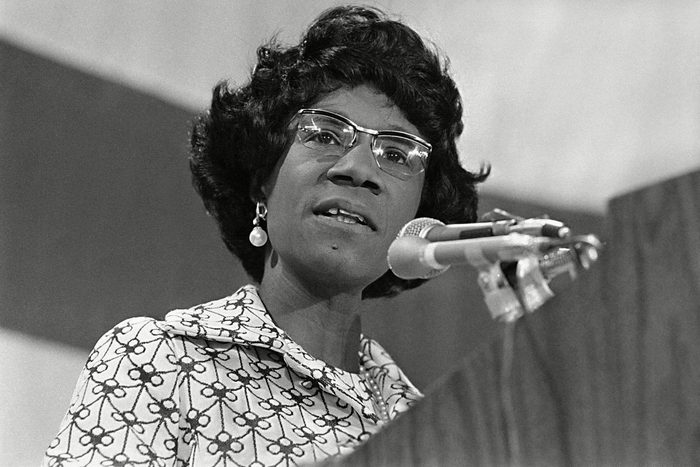
Shirley Chisholm, the first Black Congresswoman
In 1968, Shirley Chisholm became the first Black female member of Congress, representing her district in New York state in the U.S. House of Representatives for seven terms. One year after her election to Congress, Chisholm became one of the founding members of the Congressional Black Caucus. In 1972, she made history yet again when she became the first Black woman (and second woman of any race) to make a bid for the presidency, during which she survived three assassination attempts. In 2015, Chisholm was posthumously awarded the Presidential Medal of Freedom.
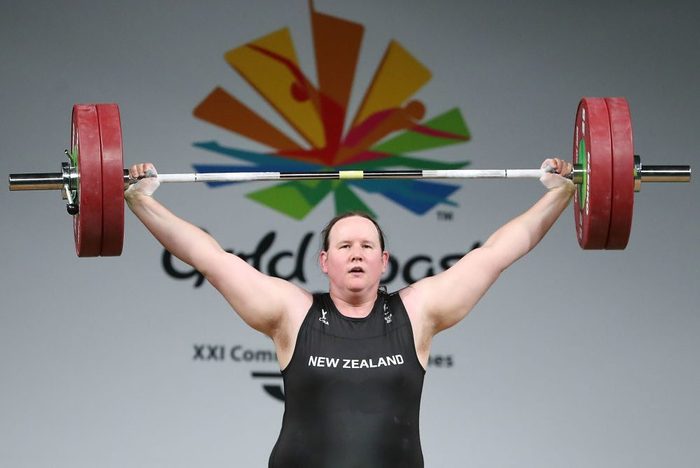
Laurel Hubbard, the first openly transgender Olympic athlete
Because of the COVID-19 pandemic, the 2020 Tokyo Summer Olympic Games were rescheduled for the following year. But that’s not the only reason the 2021 Olympics made history: It was also the first time an openly transgender athlete competed in an individual event in the Olympics. Laurel Hubbard, a weightlifter from New Zealand, failed to advance to the finals of her event, but that didn’t take away from the significance of her inclusion. In an interview following the competition, she thanked the International Olympic Committee “for living up to the Olympic values and showing that sport is for all and that weightlifting can be done by all types of people.”
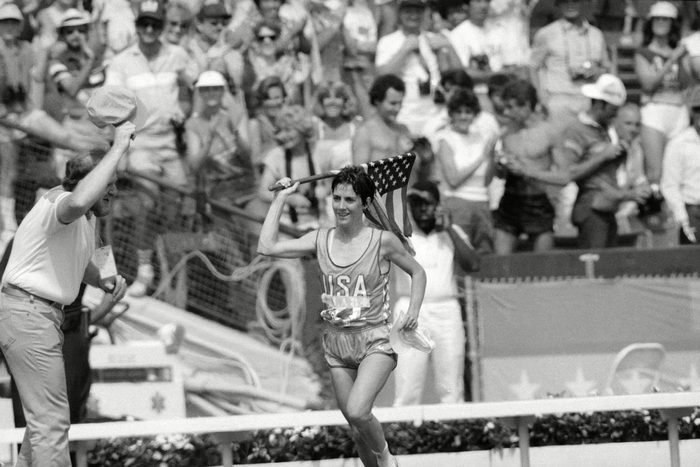
Kathrine Switzer, Nina Kuscsik and Joan Benoit, the first major female marathoners
In 1967, 20-year-old Kathrine Switzer became the first woman to run in the Boston Marathon, even though race officials had tried to stop her. In 1972, Nina Kuscsik became the first woman to officially win the Boston Marathon. And in 1984, American Joan Benoit became the first winner of the Women’s Olympic Marathon, finishing 400 meters ahead of Norway’s Grete Waitz.
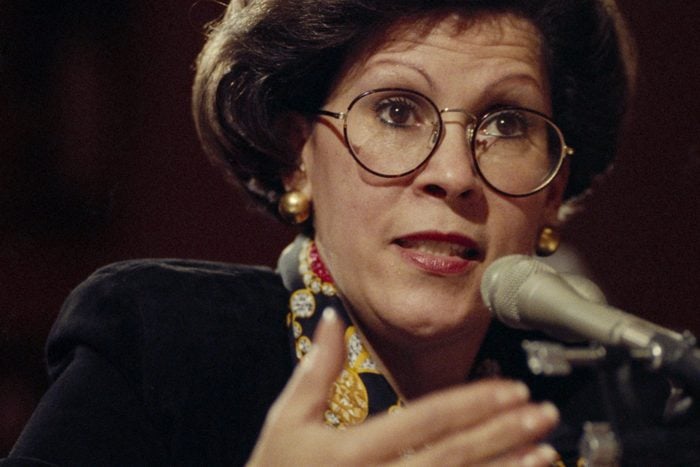
Antonia Novello, the first female U.S. Surgeon General
After training and practicing as a pediatric nephrologist, Antonia Novello, MD, who was born and raised in Puerto Rico, decided to join the U.S. Public Health Service in 1979. She held a variety of roles throughout the 1980s, and then, in 1990, President George H.W. Bush appointed her to the position of U.S. Surgeon General—making her both the first woman and the first person of color to fill the role. While Surgeon General, Novello continued her work involving AIDS but largely focused on the health of women, children and minorities. She stepped down from her position in 1993, after serving under two presidential administrations.
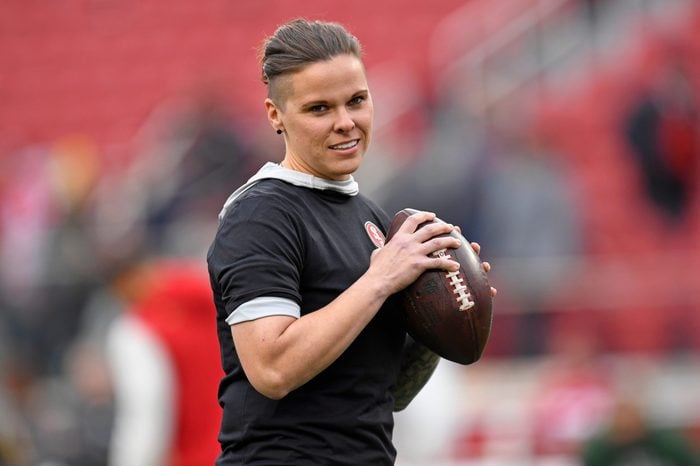
Katie Sowers, the first female coach at the Super Bowl
In a historic moment on Feb. 2, 2020, Katie Sowers made history as the first woman (and first openly gay coach) to lead a team at the Super Bowl. As an assistant coach for the San Francisco 49ers, who went head-to-head with the Kansas City Chiefs in Super Bowl LIV, Sowers, a former quarterback, may not have secured the win, but she certainly left an indelible mark.

Junko Tabei, the first woman to summit Mount Everest
Junko Tabei stood just 5 feet tall and weighed only 92 pounds, but in 1975, she co-led a group of 15 women to the summit of Mount Everest, becoming the first woman ever to reach the peak. She would eventually ascend to the highest summit on every continent.
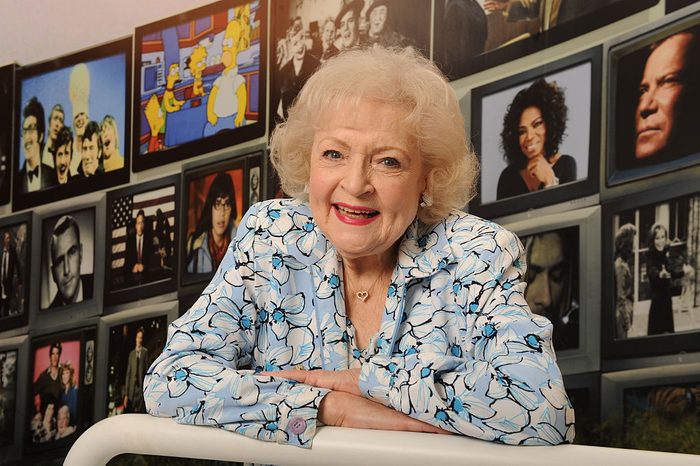
Betty White, the first woman to win an Emmy for hosting a game show
In 2018, Betty White was recognized by Guinness World Records as the female entertainer with the longest television career—which, at the time, spanned nearly 80 years. Though White died three years later, at the age of 99, she still retains this record. This is hardly surprising, given that she’d been on television nearly as long as the medium had existed. She was among the first women on TV, appearing on several experimental broadcasts in the 1930s, and in the early 1950s, she became one of the first women to write, produce and star in her own nationally syndicated TV sitcom (Life with Elizabeth). Over the years, she played beloved characters like Sue Ann Niven on The Mary Tyler Moore Show and Rose Nylund on The Golden Girls, but her big female first happened in 1983, when she became the first woman to win a Daytime Emmy Award for Outstanding Game Show Host (for NBC’s celebrity panel game show, Just Men!).
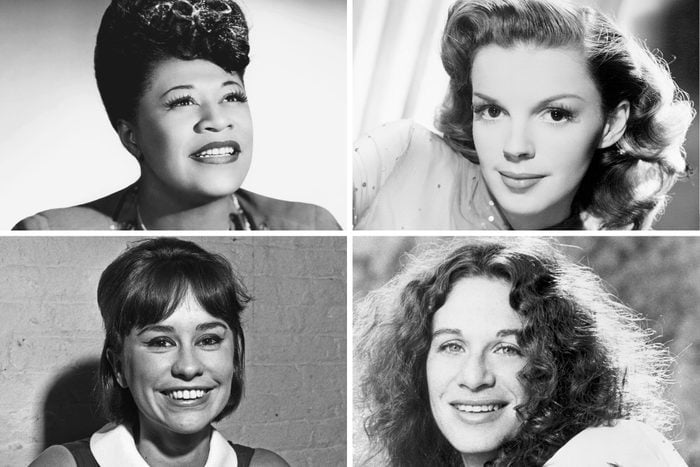
Ella Fitzgerald, Judy Garland, Astrud Gilberto and Carole King, female Grammy firsts
At the very first Grammy Awards in 1958, Ella Fitzgerald, known as the First Lady of Song, was awarded two Grammys, making her the first woman to win two of the awards and the first Black woman to win one at all. In 1962, Judy Garland made Grammy history of her own, becoming the first woman to win Album of the Year (for Judy at Carnegie Hall).
Other female Grammy firsts include:
- Astrud Gilberto: the first woman to win Record of the Year, which she did in 1964 for “The Girl from Ipanema.” She shared the honor with Stan Getz.
- Carole King: the first woman to win Song of the Year (for “You’ve Got a Friend”) and the first woman to win Record of the Year solo (for “It’s Too Late”), both of which she won in 1971
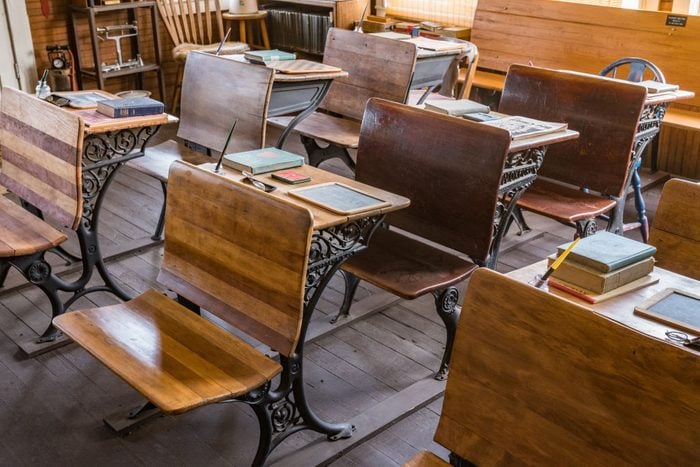
Benigna Zinzendorf, founder of the first boarding school for girls in Colonial America
Back in 1742, at a time when girls were expected to marry young and spend their lives caring for their husbands and families, Henrietta Benigna Justine Zinzendorf von Watteville (who went by Benigna) founded the first boarding school dedicated to the education of girls in the 13 colonies. Two months after opening in Germantown, Pennsylvania, the school moved roughly 70 miles north to Bethlehem, Pennsylvania, where, the curriculum included the “household arts” (a fancy word for home ec), reading, writing and religion. Known as the Bethlehem Female Seminary, the school quickly earned a reputation for providing a high-caliber education to girls, counting the nieces of George Washington and Thomas Jefferson among its students. She may not be one of the most famous women in history, but Zinzendorf deserves more credit for her work.
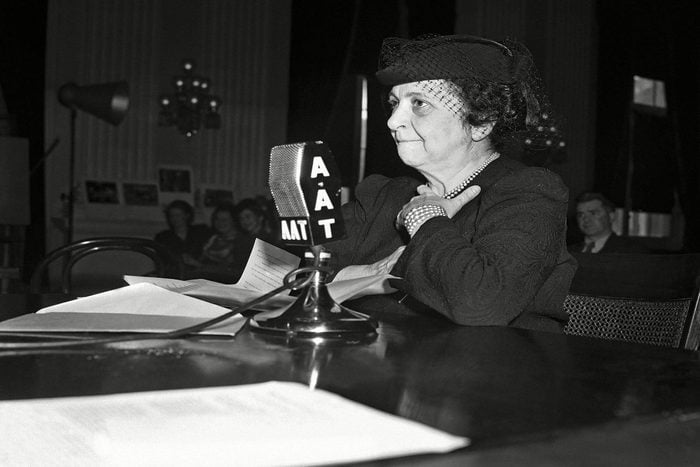
Frances Perkins, the first female member of a presidential Cabinet
In 1933, President Franklin D. Roosevelt appointed Frances Perkins, a sociologist and political reformer from New York, as his Secretary of Labor. Perkins held the position until 1945, making her the longest-serving Secretary of Labor in U.S. history. During that time, she was a key figure in establishing the New Deal, even writing some of the legislation, including minimum wage laws. Perkins also chaired the President’s Committee on Economic Security in 1934, which resulted in the Social Security Act of 1935.
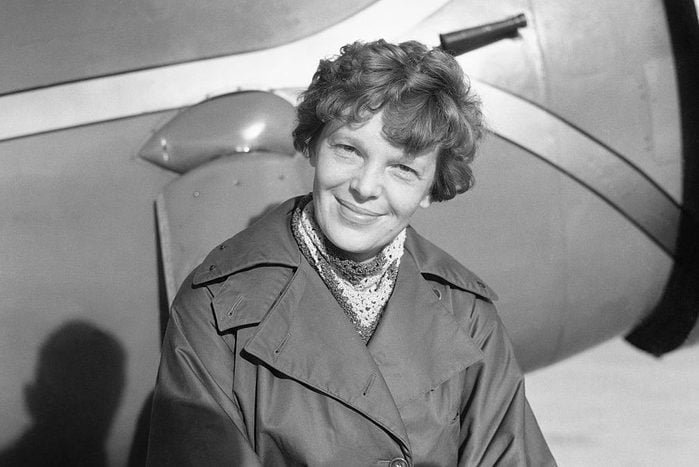
Amelia Earhart and Jerrie Mock, the first women in cross-ocean aviation
We can’t talk about famous women in history without mentioning Amelia Earhart, who is probably best known for her mysterious disappearance during an ill-fated around-the-world flight in 1937. A decade before Earhart’s disappearance over the Pacific Ocean, however, she became the first woman to ever fly solo across the Atlantic (in 1928), earning herself a ticker-tape parade and even an editorship at Cosmopolitan.
The first woman to successfully make the around-the-world flight, by the way, was Geraldine “Jerrie” Mock, who flew a single-engine Cessna-180 around the world in 1964.

Felisa Rincón de Gautier, the first woman elected mayor of a major city in the Western hemisphere
When Felisa Rincón de Gautier was elected mayor of San Juan in 1946, she not only became the first woman to lead the Puerto Rican capital but also the first woman elected mayor of any major city in the Western hemisphere. Gautier, affectionately known as Doña Fela in Puerto Rico, served as San Juan’s mayor until 1968. During her time in office, she focused on street cleaning, hygiene, historic restoration and social services for children and lower-income communities.
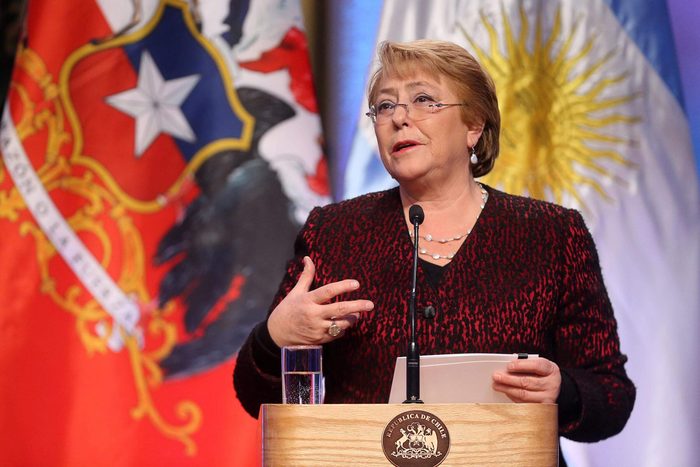
Verónica Michelle Bachelet Jeria, the first female president of Chile
First elected president of Chile in 2006, Verónica Michelle Bachelet Jeria, known publicly as Michelle Bachelet, was the first woman to hold the office in her country. After leaving office in 2010, she found she couldn’t stay away for long. In 2013, she was reelected president with more than 62% of the vote, making her not only the first female president of Chile but also the first person since 1932 to win the presidency twice in contested elections. She has served as the United Nations High Commissioner for Human Rights since 2018.
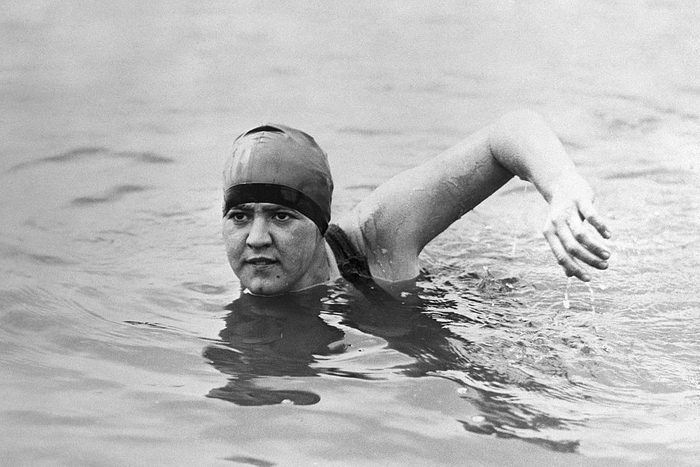
Gertrude Ederle, the first woman to swim across the English Channel
On Aug. 6, 1926, Gertrude Caroline Ederle became the first woman to swim across the English Channel—and accomplished the feat with a time almost two hours shorter than the fastest man who had completed the swim. While that earned her a world record, it was far from Ederle’s first: Between 1921 and 1925, she set 29 U.S. and world records for swimming. and she won a gold medal and two bronze medals in the 1924 Paris Olympics. Though she’s not one of the most famous women in history, at the peak of her career, she was one of the best-known athletes in the world.
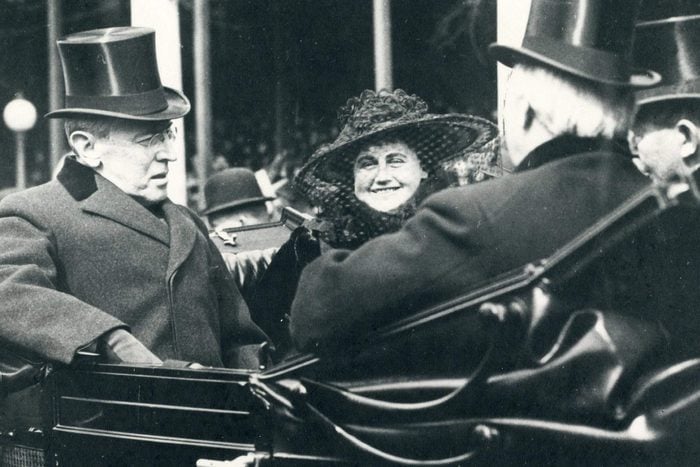
Edith Wilson, the first female “Secret President”
Being married to President Woodrow Wilson didn’t just make Edith Galt Wilson the first lady—it also made her the first woman (that historians know of) to have made executive decisions on behalf of the United States. This earned her the moniker Secret President. Edith’s run as the stand-in chief executive began in 1919, when Woodrow suffered a stroke. For many months, the nation didn’t know the president had fallen ill, but over time, people came to suspect that Edith was in charge. Years later, the extent of Edith’s political power was confirmed by historians.
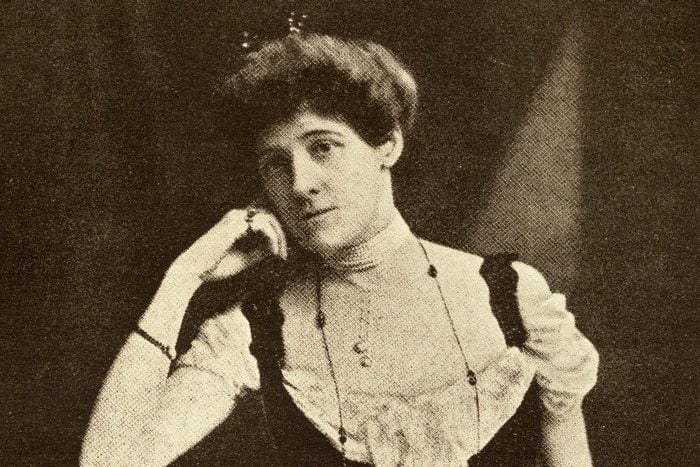
Edith Wharton, the first female Pulitzer Prize winner
Another Edith blazed a trail for women in the early 20th century: In 1921, Edith Wharton became the first female winner of the Pulitzer Prize for her book The Age of Innocence, a critique of upper-class society in turn-of-the-century New York City. It’s one of the books by female authors that belongs on everyone’s must-read list.
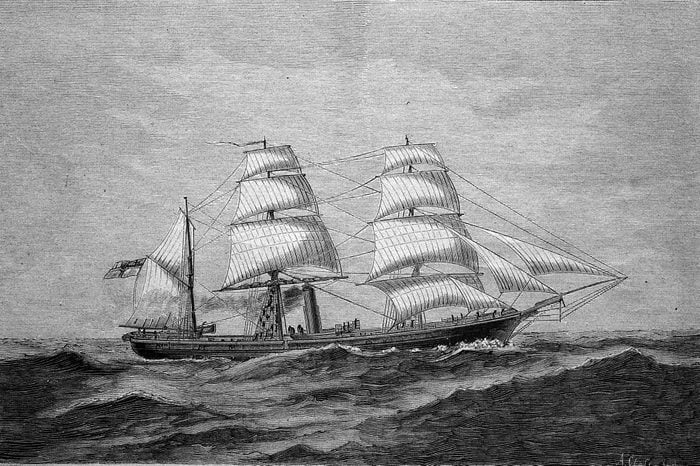
Jeanne Baret, the first woman to circumnavigate the globe
When a 26-year-old Frenchwoman named Jeanne Baret joined Louis de Bougainville’s round-the-world expedition in 1766, she did so as the assistant to the voyage’s botanist—and as a man. At the time, French law forbade women from traveling on navy ships, so Baret spent much of the trip disguised as a man named “Jean.” When her crewmates discovered her true identity, they brutally attacked Baret. She remained sequestered on board until 1768, when she disembarked in Mauritius. Baret may not be as well-known as some of the other important women in history, but in addition to making several valuable contributions to the field of botany, she became the first woman to circumnavigate the globe.
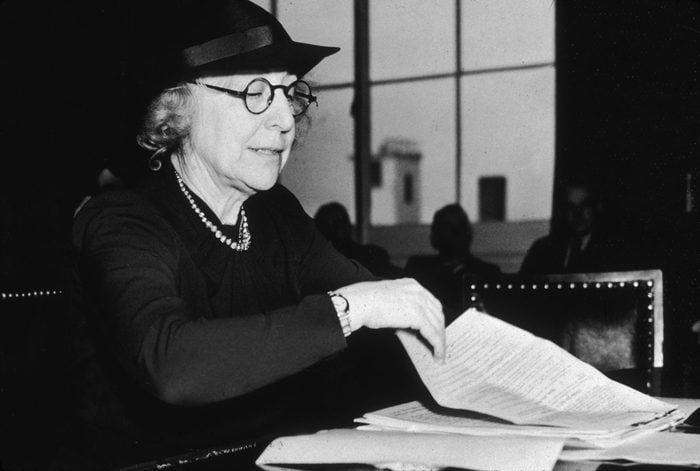
Jeannette Rankin, the first female member of Congress
Four years before women secured the right to vote in the United States, Jeannette Rankin was elected to the House of Representatives, becoming the first woman elected to national office in the United States. She served two nonconsecutive terms in the House as a representative from Montana, coinciding with World War I and World War II.
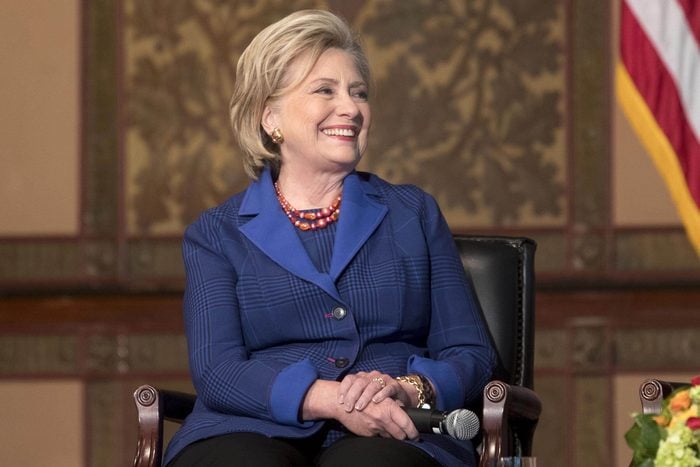
Hillary Clinton and Victoria Woodhull, the first female presidential nominees
In 2016, Hillary Rodham Clinton, former first lady, senator and Secretary of State, was nominated by the Democratic Party as its presidential candidate—the first woman from a major party ever to achieve this feat. And though she did not become president, Clinton holds the distinction of being the first woman to win the popular vote in an American presidential election.
Clinton was not, however, the first woman to run for POTUS. That distinction goes to Victoria Woodhull, who ran unsuccessfully in 1872 as a member of the Equal Rights Party. And that’s only one reason Woodhull made history: She was also the first woman to own a brokerage firm on Wall Street, the first woman to start a weekly newspaper and a prominent activist for women’s rights and labor reform.
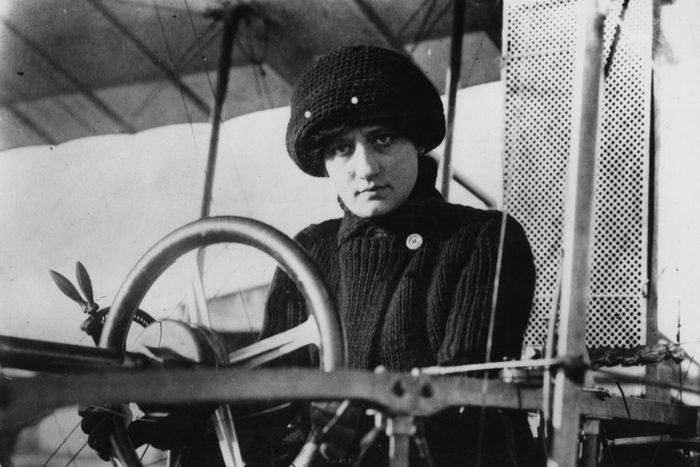
Raymonde de Laroche, the first female licensed pilot
Although Raymonde de Laroche, a French engineer, wasn’t the first female aviator, she was the first woman to earn a pilot’s license. She learned how to fly in 1909 upon the suggestion of Charles Voisin, an aviation pioneer who also served as her instructor. The following year, de Laroche was awarded a pilot’s license, and she set a women’s altitude record of 15,700 feet nine years later.
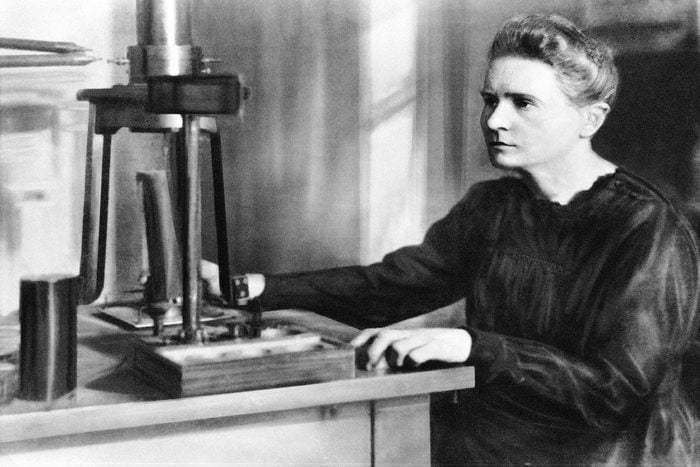
Marie Curie, the first female Nobel Prize winner
Arguably the most famous female scientist of them all and one of the most important women in history, Marie Curie, born Maria Sklodowska in Warsaw, Poland, in 1867, was a young revolutionary before she began her studies in physics and math at the Sorbonne in Paris. There, she met her husband, Pierre Curie, a physics professor. In 1903, the couple was awarded half the Nobel Prize for research on radiation led by Henri Becquerel (he got the other half). Curie earned a Nobel Prize of her own in 1911 for her work in chemistry, and she remains the only woman to have won the Nobel Prize twice.
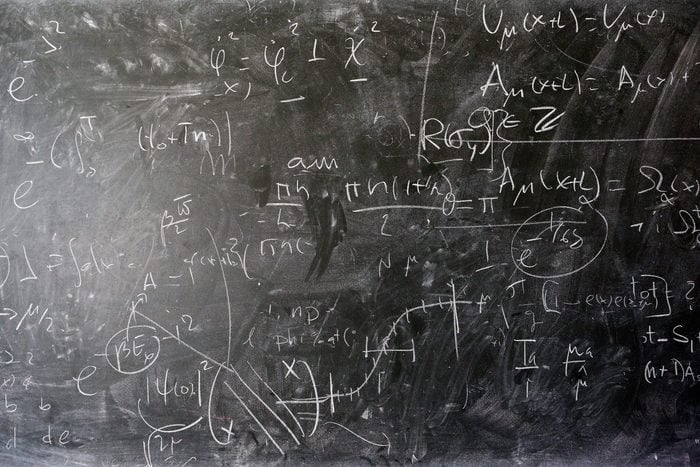
Winifred Edgerton Merril, the first American woman to earn a doctorate in mathematics
In 1886, Winifred Edgerton Merril became the first woman to receive a degree from Columbia University and the first American woman to earn a PhD in mathematics anywhere in the United States. Much of her work was in the field of mathematical astronomy and included computing the orbit of the comet of 1883.
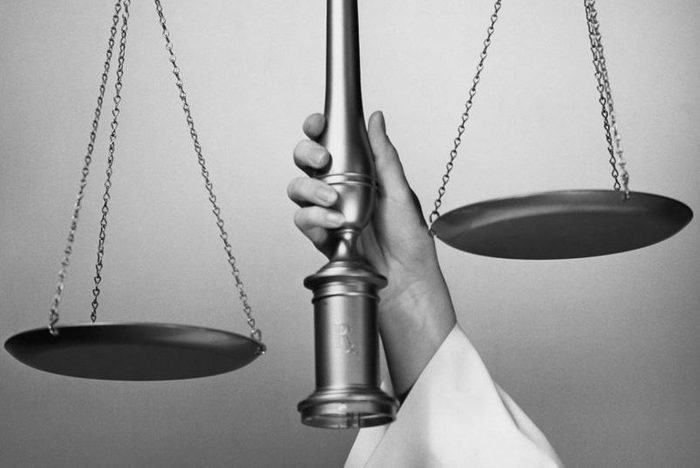
Arabella Mansfield and Ada Kepley, America’s first female lawyer and first female law school graduate
In 1869, Arabella Mansfield became the first female lawyer in the United States when she was admitted to the Iowa State Bar Association after studying and apprenticing (an alternative to passing the bar exam after attending law school). The first woman to graduate from law school was Ada Kepley, who graduated the following year from the school that would eventually become Northwestern University.
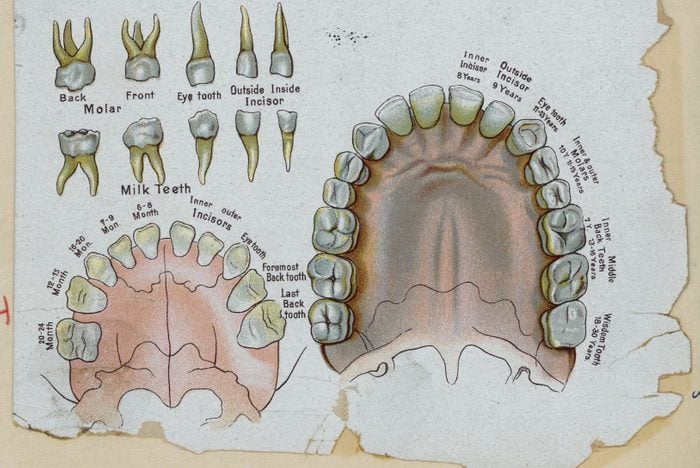
Lucy Hobbs Taylor, the first female dentist in the United States
After being denied admission to the Ohio College of Dental Surgery because of her gender, Lucy Beaman Hobbs privately studied under a professor from the school. When she was once again refused admission to the dentistry program, she opened a private practice in 1861. Four years later, the Ohio College of Dental Surgery began accepting women, and Hobbs reenrolled. She became the first woman to graduate from dental college, in 1866. Hobbs then moved to Chicago, where she established a dental practice and married a Civil War veteran named James Myrtle Taylor. The couple later moved to Kansas, where Hobbs set up a new practice and campaigned for women’s rights.
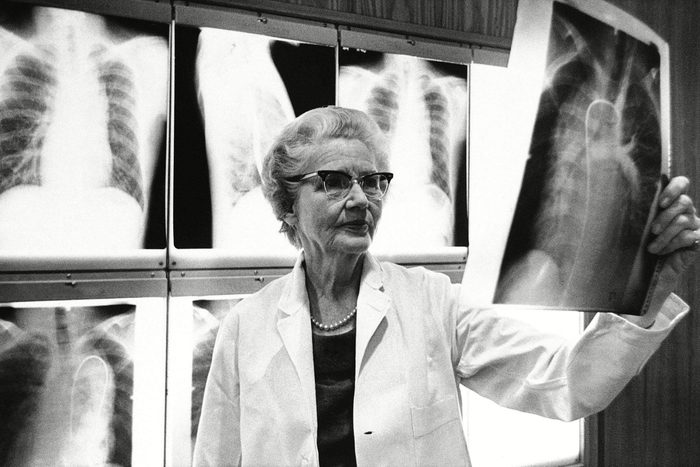
Helen Taussig, the first female president of the American Heart Association
Born in 1898, Helen Brooke Taussig graduated from the Johns Hopkins University School of Medicine in 1927 and quickly emerged as a pioneer in pediatric cardiology. Taussig was also an early leader of the movement to ban thalidomide, a drug for morning sickness that caused malformations in children’s limbs when their mothers took it during pregnancy.
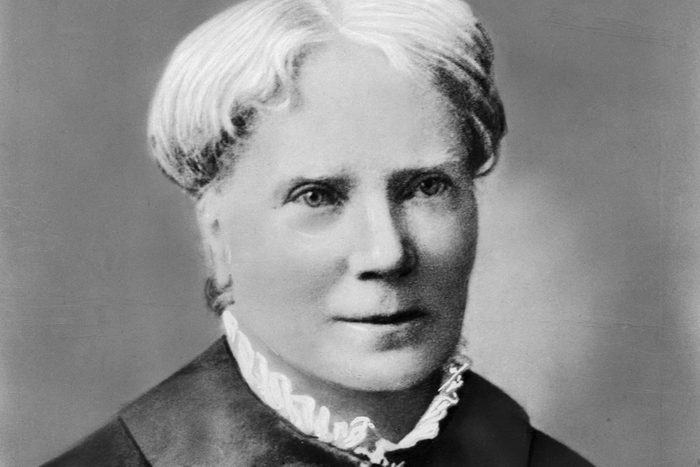
Elizabeth Blackwell, the first woman to graduate from a medical school in the United States
As the story goes, Elizabeth Blackwell was admitted to Geneva Medical College in western New York state because the all-male faculty voted her in, thinking it was all a hilarious joke. Of course, Blackwell was completely serious, and ultimately, the joke was on them: She received her medical degree in 1849, making her the first woman in the country to graduate from medical school.

Ada Lovelace, the first computer programmer
There can’t be a discussion of important women in history without Ada Lovelace, who was not only the first female computer programmer but also the first computer programmer of any gender. A brilliant mathematician born in England, Lovelace wrote what many consider the world’s first machine algorithm for an early computing machine. Her algorithm was published in an article in a British journal in 1843.
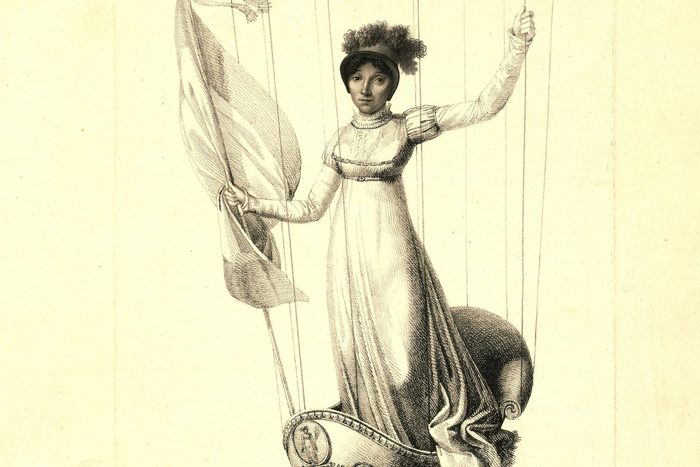
Sophie Blanchard, the first woman to pilot a hot-air balloon
Sophie Blanchard learned her aeronautical skills from her husband, who died of a heart attack beside Sophie while she was piloting a balloon. “Tiny” and “nervous,” according to Smithsonian magazine, she nevertheless found flight to be a “sensation incomparable” and made her first solo balloon ascent in 1805. Unfortunately, Blanchard also became the first woman to die in an aviation accident when her balloon caught fire and crashed to the ground in 1819.
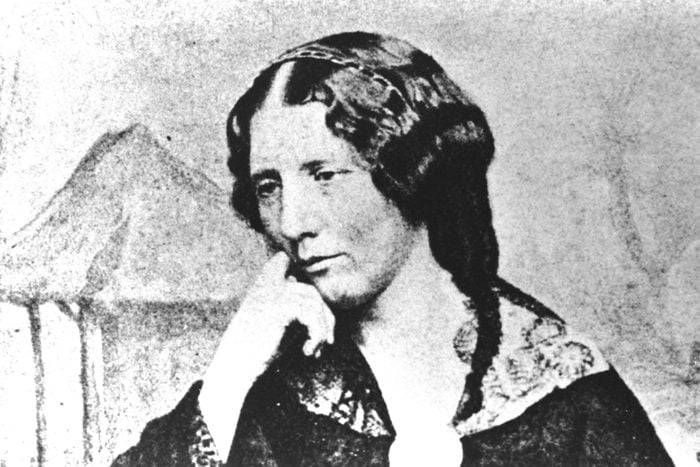
Harriet Beecher Stowe, the first American author of an internationally bestselling novel
Though Harriet Beecher Stowe spent the first 21 years of her life in Connecticut, it was her time living in Cincinnati—specifically, her involvement in anti-slavery movements—that inspired her to write her 1852 runaway hit, Uncle Tom’s Cabin. Though there’s no strict definition of what constitutes an international bestseller, many consider Uncle Tom’s Cabin to be the first internationally bestselling novel written by an American. Stowe’s most famous book was the bestselling novel and the second-bestselling book of the 19th century, after the Bible. Also interesting: This book was censored in many states around the time of its release, and it has even ended up on book-banning lists today.

Ann Smith Franklin, the first female newspaper editor in America
You’ve heard of Ben Franklin, but how about his sister-in-law, Ann Smith Franklin, who was married to Ben’s brother, James? Her husband died in 1735, leaving Ann a widow with five kids. In 1762, she took over as sole editor and publisher of the Newport Mercury, a Rhode Island newspaper that Ann had helped James launch. She later printed an almanac series and was inducted into the University of Rhode Island’s Journalism Hall of Fame.
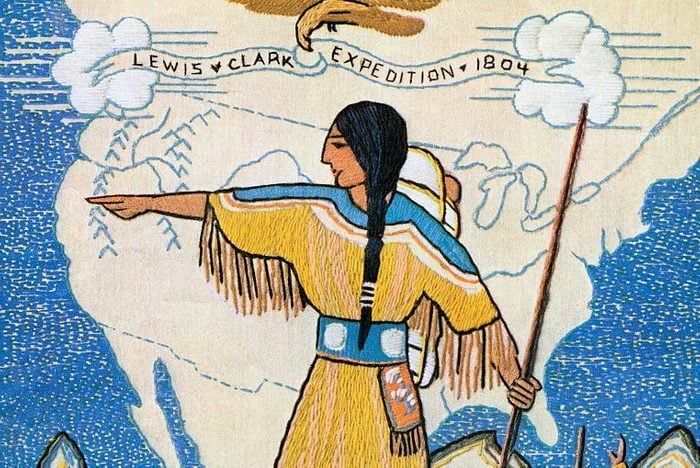
Sacagawea, the first (and only) woman to accompany Lewis and Clark
In 1805, Sacagawea, a member of the Shoshone Tribe, became the first and only woman to accompany the Lewis and Clark expedition, exploring the West and seeking a route to the Pacific. Barely a teenager, and also a brand-new mother, Sacagawea kept her baby strapped to her back as she acted as a Shoshone interpreter, brokered deals for supplies and served as a skilled navigator. Her presence may have been the difference between life and death for many on the expedition.
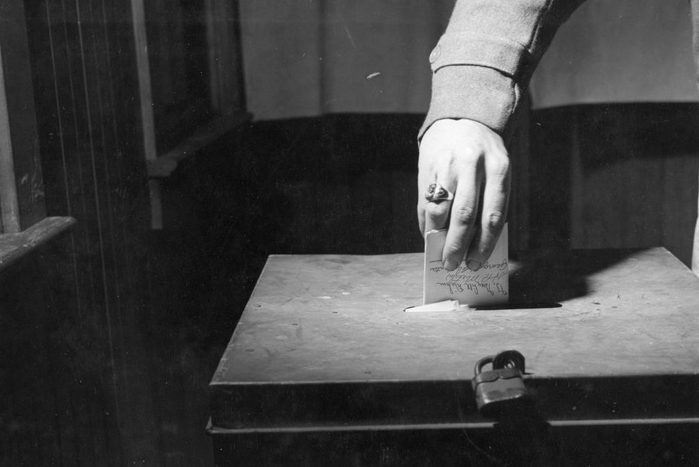
Lydia Taft, the first woman to vote legally in America
In 1756, a century before women’s suffrage became a movement, Lydia Chapin Taft became the first woman to vote in America. Taft was the widow of an influential landowner in Uxbridge, Massachusetts, whose recent death was thwarting the town’s plan to help finance the ongoing French and Indian War. So to get stuff done, she was asked to vote in her dead husband’s place. Guess word of Taft’s voting never reached President Grover Cleveland, who famously said that “sensible” women don’t vote.
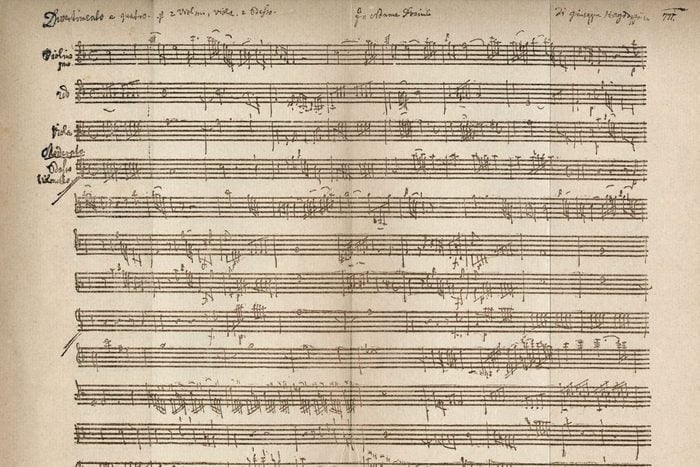
Francesca Caccini, the first known female opera composer
Italian Francesca Caccini was 38 years old when La Liberazione di Ruggiero, the opera she composed, was performed for the first time in Florence. The year was 1625, and Caccini was not only an accomplished composer but also a lute player, poet and music teacher. On top of that, she was the highest-paid musician of any gender in the Medici court in the 1620s.
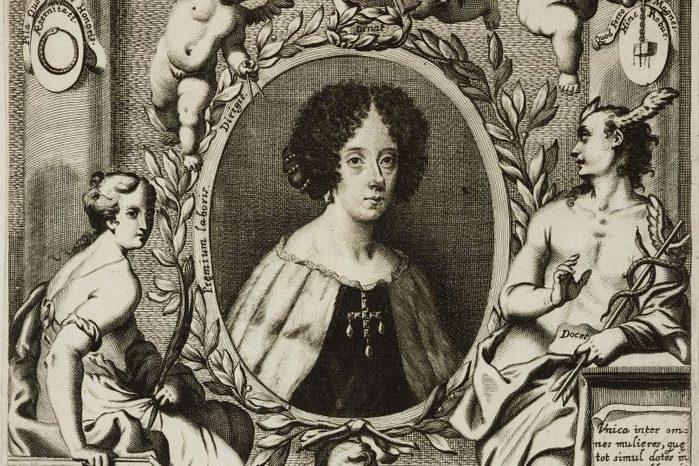
Elena Cornaro Piscopia, the first woman to earn a doctorate
Born in Venice, Italy, in 1646, Elena Cornaro Piscopia received an unusually comprehensive education, thanks to a series of tutors. Although her parents wanted her to get married, Piscopia wasn’t interested in that life, so at the age of 11, she joined a Benedictine monastery as an affiliated layperson. She went on to attend the University of Padua, where she was awarded her doctorate in philosophy in 1678.
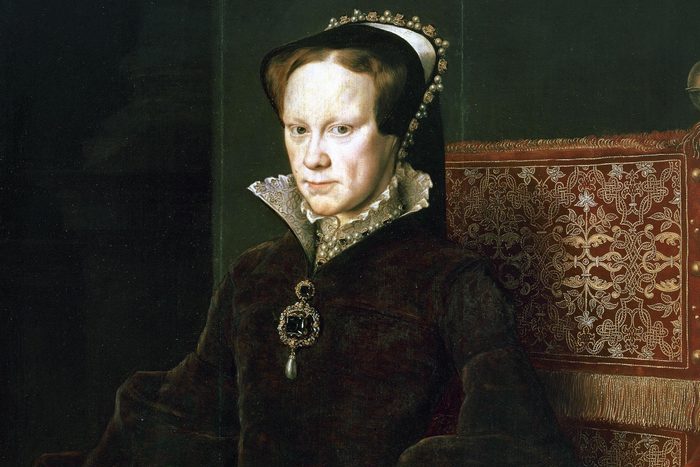
Mary Tudor, the first female ruler of England
Though Elizabeth I gets all the acclaim, it was her half sister Mary Tudor, the only adult child of King Henry VIII and his first wife, Catherine of Aragon, who was crowned the first queen of England, in 1553. This was after the death of Henry in 1547 and a short reign by Henry’s ill-fated teenage son, Edward (Henry’s child with his third wife, Jane Seymour). Known historically as Bloody Mary for her sometimes violent political acts, she died in 1558. A year later, Elizabeth began her historic rule.
![Anne (1665-1714), Queen of Great Britain and Ireland from 1702. Portrait. Taken from [Angliae Notitia] [Magnae Britanniae Notitia, or the Present State of Great Britain, with divers remarks upon the antient state thereof]. Originally pub./prod. in London, 1669-1755.](https://www.rd.com/wp-content/uploads/2018/02/QueenAnne.jpg?fit=700%2C467)
Queen Anne, the first female ruler of Great Britain
Following the 1702 death of her brother-in-law, William III, Anne Stuart was crowned queen of England. Five years later, the Treaty of Union came into effect, merging the kingdoms of England and Scotland to form Great Britain, making Anne the first ruler of Great Britain.
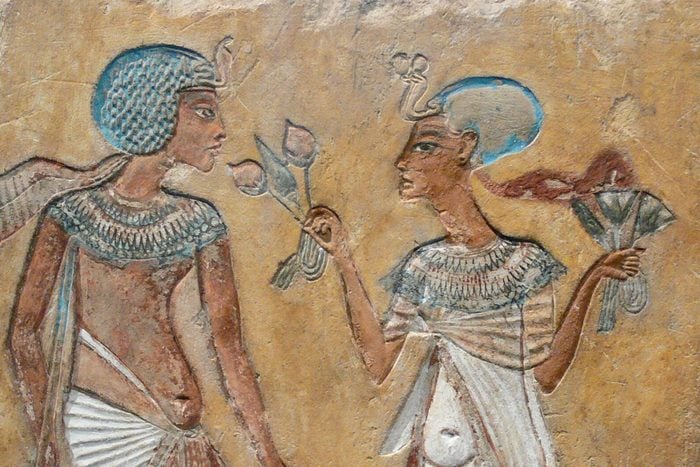
MerNeith and Sobekneferu, the first woman pharaohs
Historians believe that around 2950 B.C., MerNeith—the daughter of one pharaoh, wife of another and mother of yet another—ruled Egypt in her own right for a period of time. If that’s accurate, it would have made her not only the first female pharaoh but also the first female monarch in recorded history.
The first female pharaoh whose reign was confirmed by scientific evidence was Sobekneferu, who ruled Egypt between 1806 and 1802 B.C., following the death of her brother, Amenemhat IV.
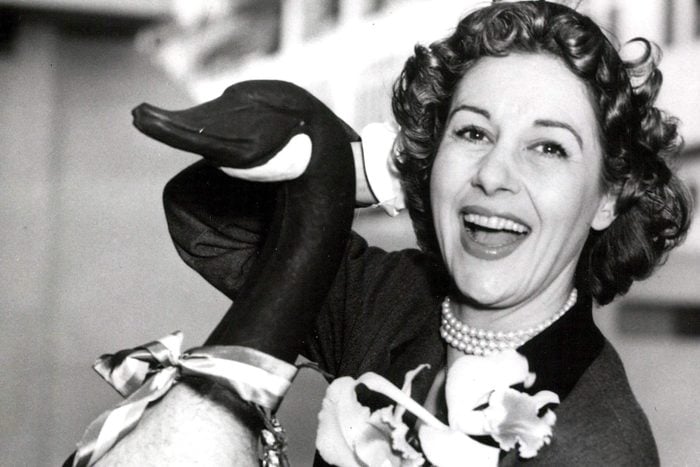
Arlene Francis, the first female TV game show host
Born in 1907, Arlene Francis always wanted to be a serious actress. While live theater was her first love, it was her work on a sound stage that made history. Francis was a serious radio personality throughout the 1930s and 1940s, and in 1943, she became the host of a new radio matchmaking game show called Blind Date. The show moved from radio to television in 1949, making Francis the first woman to host a television game show. She hosted the TV version of Blind Date until 1952 and also served as a panelist on CBS’s What’s My Line? for 25 years.
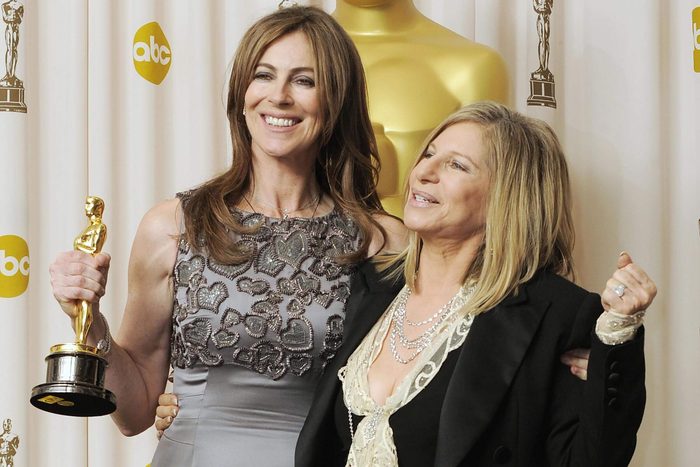
Barbra Streisand and Kathryn Bigelow, film-industry firsts
In 1984, Barbra Streisand became the first woman to win a Golden Globe Award for Best Director. The film was Yentl, in which Streisand also starred, playing a woman pretending to be a man. In 2010, Kathryn Bigelow became the first woman to win an Oscar for Best Director. The film was The Hurt Locker, and one of the other nominees was Bigelow’s ex-husband, James Cameron, for Avatar. If you haven’t seen these flicks, get to it—they’re two of the best movies of all time.
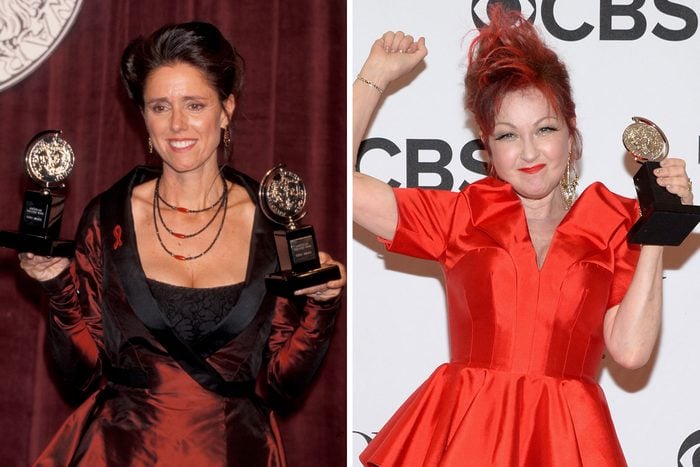
Julie Taymor and Cyndi Lauper, theater-world firsts
It wasn’t until 1998 that a woman won a Tony Award for Best Director of a musical. That was Julie Taymor, who won for The Lion King. In 2013, Cyndi Lauper became the first woman to win a Tony Award (solo) for Best Original Score, for Kinky Boots.
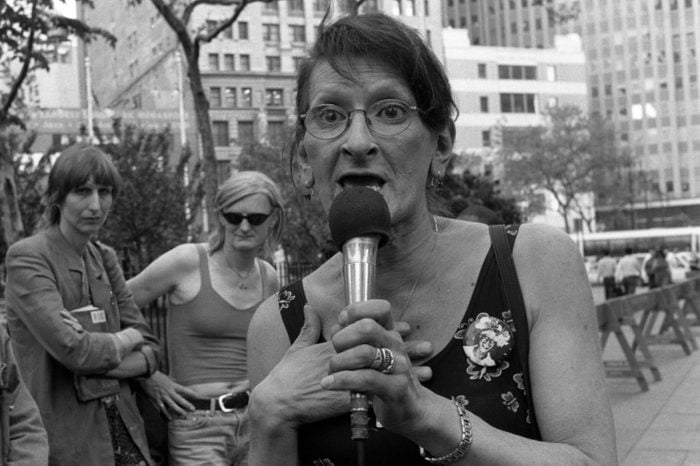
Sylvia Rivera, the first transgender person featured in the National Portrait Gallery
Born in the Bronx in 1951, Sylvia Rivera spent much of her life as an activist for LGBTQ+ rights, especially LGBTQ+ people of color. Rivera, along with friend and fellow activist Marsha P. Johnson, made history in 1971, when they established the Street Transvestite Action Revolutionaries (S.T.A.R.) House, America’s first youth shelter for trans youth. After several more decades of campaigning, Rivera died in 2002 from complications related to liver cancer. Thirteen years later, she became the first transgender person to have their picture hung in the National Portrait Gallery in Washington, D.C.
Why trust us
At Reader’s Digest, we’re committed to producing high-quality content by writers with expertise and experience in their field in consultation with relevant, qualified experts. We rely on reputable primary sources, including government and professional organizations and academic institutions, as well as our writers’ personal experiences where appropriate. We verify all facts and data, back them with credible sourcing, and revisit them over time to ensure they remain accurate and up to date. Read more about our team, our contributors and our editorial policies.
Additional reporting by Lauren Cahn.
